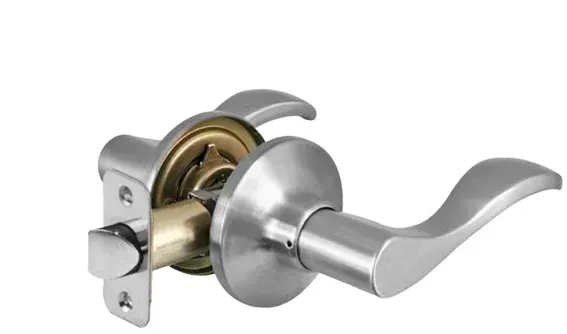Securing a door lock with traditional locks
Securing a door lock with traditional locks
In today's world, where security is paramount, ensuring the safety of our homes and businesses is a top priority. One of the foundational elements of security is the door lock, and while modern technology has introduced advanced electronic locking systems, traditional locks still play a crucial role in safeguarding our properties. In this comprehensive guide, we will explore the importance of securing door locks with traditional methods and delve into various types of traditional locks, installation and maintenance tips, as well as additional security measures to bolster overall security.
Read here the ultimate guide to buying door locks!
Why Traditional Locks Matter
Traditional locks have stood the test of time for a reason – they are reliable, durable, and effective at deterring unauthorized entry. While electronic locks offer convenience and advanced features, traditional locks provide a basic level of security that remains unmatched. They serve as a physical barrier against intruders and offer peace of mind to homeowners and business owners alike.
Types of Traditional Locks
When it comes to securing doors with traditional locks, several options are available, each with its own set of features and benefits.
Deadbolt Locks
Deadbolt locks are one of the most common types of traditional locks used for securing doors. They consist of a solid metal bolt that extends into the door frame when locked, providing a strong and reliable barrier against forced entry. Deadbolt locks are available in single cylinder and double cylinder configurations, with the latter offering added security by requiring a key to unlock from both the inside and outside.
Read more about How to Install a Deadbolt Lock in 9 Steps.
Knob Locks
Knob locks are another popular choice for securing doors, especially on interior doors within residential properties. These locks feature a knob or lever on one side of the door and a keyhole on the other side. While knob locks offer convenience and ease of use, they are typically not as secure as deadbolt locks and are often used in conjunction with other locking mechanisms for added security.
Lever Handle Locks
Lever handle locks are commonly found on commercial doors but are also used in residential settings. They feature a lever handle on both sides of the door, making them easy to operate for individuals with limited mobility or dexterity. Lever handle locks offer a higher level of security compared to knob locks and are available in various configurations to suit different security needs.

Installation and Maintenance Tips
Proper installation and maintenance are essential for ensuring the effectiveness of traditional locks. Here are some tips to keep in mind:
Installation Procedures
When installing traditional locks, follow the manufacturer's instructions carefully to ensure proper alignment and functionality. Use high-quality screws and hardware to secure the lock in place and prevent tampering. If you're not confident in your installation skills, consider hiring a professional locksmith to do the job.
Maintenance Practices
Regular maintenance is key to prolonging the life of traditional locks and ensuring they function properly. Keep the locks clean by wiping them down regularly with a damp cloth and mild detergent. Apply a lubricant to the lock mechanism and keyhole to prevent rust and corrosion. Inspect the locks periodically for any signs of wear or damage and replace any worn components as needed.
Additional Security Measures
While traditional locks provide a solid foundation for security, they can be complemented by additional security measures to further enhance protection.
Door Reinforcement
Reinforcing doors with additional hardware, such as door jammers, security bars, or reinforced strike plates, can make it more difficult for intruders to force their way in. Consider installing a door reinforcement kit for added peace of mind.
Security Cameras and Alarms
Installing security cameras and alarms near entry points can serve as a deterrent to would-be intruders and provide valuable evidence in the event of a break-in. Choose a security system that offers remote monitoring and alerts so you can keep an eye on your property even when you're away.
Conclusion
Securing door locks with traditional methods remains an essential aspect of home and business security. While electronic locks offer convenience and advanced features, traditional locks provide a reliable and time-tested solution for keeping intruders at bay. By understanding the different types of traditional locks, following proper installation and maintenance practices, and implementing additional security measures, you can create a robust security system that offers peace of mind and protection for your property.
Call Us Any Time!







